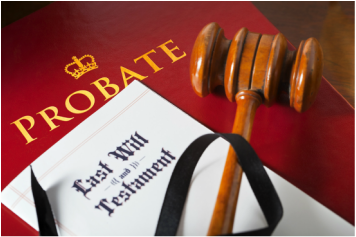Frequently Asked Questions About Probate
Small Estate (Summary) Administration |
|
|
What is the difference between formal probate and summary administration?Formal probate administration takes longer. An estate must qualify for summary administration.
What is a small estate affidavit?Small estate affidavits describe the extent of the decedent’s estate, the proper heirs and beneficiaries, creditors, and proper allocation of assets. They are used to administer the estate of a decedent when the estate value does not meet the state threshold required for an otherwise probate administration through court.
Who can sign a small estate affidavit?Any affidavit is signed under oath by a person with knowledge of the statements therein.
|
What is the role of the person signing the affidavit in the estate division and affairs?In estates where a small estate affidavit can be used, the person signing the affidavit is typically the person who is acting as the unofficial personal representative.
Are there times when a small estate affidavit should not, or cannot, be used?Yes, they cannot be used to distribute an estate when the estate’s value exceeds the state minimum threshold or when there is real property (real estate) to transfer.
|
|




